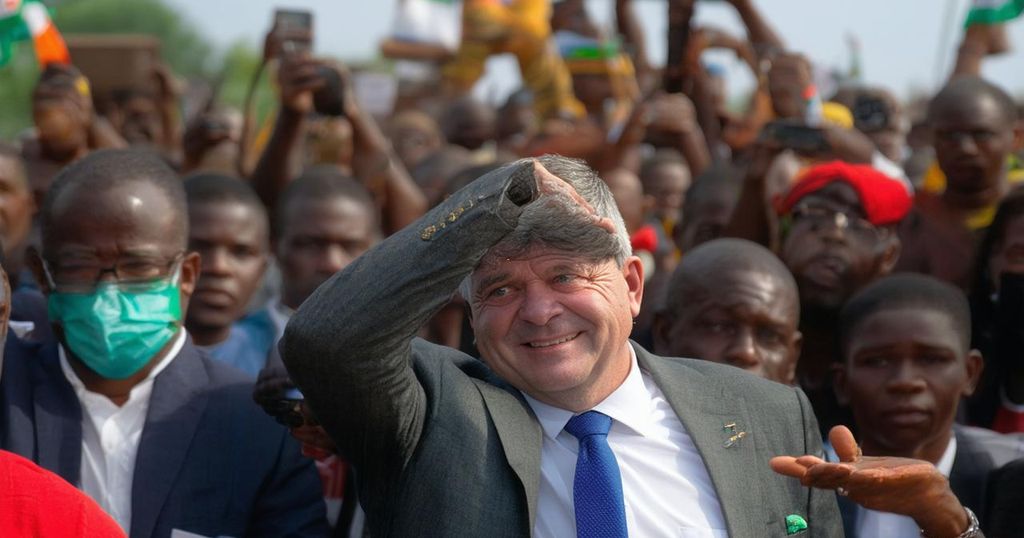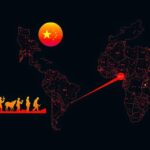IOC President Thomas Bach’s Official Visit to Uganda: Promoting Sports and Refugee Support
IOC President Thomas Bach’s visit to Uganda involved engagements with local athletes and discussions with government officials about the role of sports in community empowerment, particularly for refugees. Highlights included a tree planting ceremony, discussions on the Olympic Forest Network, and the promotion of the Game Connect initiative, which uses sports to support the mental health and integration of young refugees.
The President of the International Olympic Committee (IOC), Thomas Bach, recently concluded a productive visit to Uganda, accompanied by prominent figures including Donald Rukare, President of the National Olympic Committee (NOC) of Uganda, and IOC Member William Blick. The visit featured engagements with Ugandan athletic icons such as Olympic champion Joshua Cheptegei and fellow Olympians Winnie Nanyondo and Halima Nakaayi. During his stay, President Bach participated in the planting of a tree at the Uganda Wildlife Authority Centre, symbolizing Uganda’s connection to the IOC’s Olympic Forest Network, an international initiative aimed at environmental sustainability. Later, he engaged in an insightful Q&A session with local athletes, who expressed gratitude for the IOC’s support and voiced enthusiasm for the upcoming Olympic Games in Paris 2024. In his remarks at a subsequent gala dinner, President Bach commended the athletes for their exemplary performances and emphasized the Games’ unique capacity to bring the world together amidst global challenges, attributing this success to the IOC’s commitment to political neutrality. The following day, President Bach met with Ugandan Prime Minister Robinah Nabbanja and the United Nations High Commissioner for Refugees, Filippo Grandi. In this meeting, he noted the exceptional work of the Ugandan NOC in not only supporting sports but also in promoting the United Nations Sustainable Development Goals (SDGs), particularly in areas such as gender parity and climate action. Prime Minister Nabbanja echoed this sentiment, highlighting the potential of sports as a vehicle for social unity and empowerment for refugees through the IOC’s Game Connect initiative. Upon visiting a Game Connect project targeting refugee populations in urban Kampala, President Bach observed firsthand how this initiative fosters mental well-being and community inclusion through sport. Engaging directly in activities designed to assist young refugees, he witnessed the profound impact of sports on resilience and recovery in displaced individuals. President Bach concluded his visit at the Uganda Olympic Committee headquarters, where he recorded his appreciation in the NOC’s “Golden Book” and acknowledged the committee’s efforts to promote Olympic values. In a meeting with President Yoweri Museveni and First Lady Janet Museveni, he received accolades for the IOC’s contributions, particularly regarding the innovative Game Connect initiative. President Museveni expressed interest in the intersection of sports and refugee support. The visit culminated in a farewell celebration highlighting the rich cultural tapestry of Uganda, showcasing the legislative and communal spirit that sports can engender. Overall, President Bach’s visit underscored the role of sports in advancing social causes and fostering international goodwill, alongside the critical contributions of Uganda as a leading host nation for refugees.
This article outlines the visit of IOC President Thomas Bach to Uganda, emphasizing the collaboration between the IOC and the National Olympic Committee of Uganda in promoting sports and social initiatives, particularly for refugees. The visit serves as a platform for discussing the impact of sports on community well-being and the support of the IOC for local Olympic development and sustainability goals.
In summary, President Thomas Bach’s visit to Uganda highlighted numerous facets of the IOC’s commitment to fostering athletic excellence and implementing social initiatives that benefit refugees and underserved communities. His discussions with local leaders and engagement with athletes reflect a dedication to enhancing the role of sports as a unifying force in society, while also addressing pressing global issues such as sustainability and social inclusion.
Original Source: olympics.com








Post Comment